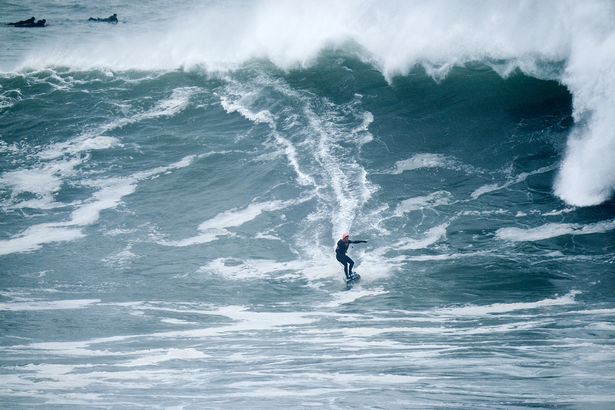
De Merher, degves war ügens mis Meurth
Wednesday, 30th March
Tewl ew an nos lebmyn drefen nag eus loor vrâs. Nag ew hei bes pajar a'n cans gòlowys. Avorow e vedh loor nowydh. Comolek ew an ebòrn ewedh. E veu üdn crak taran, saw na wrüga vy gweles an luhesen. My a glowas keser nebes münysen, nena gellys veu an enawel.
The night is dark now because there's not a big moon. It is only 4% illuminated. Tomorrow there will be a new moon. The sky is cloudy too. There was one thunder clap, but I did not see the lightening flash. I heard hail for several minutes, ten the storm was gone.
Cressya emann agan tavas Kernôwek: Radn 18c
Building up our Cornish language: Part 18c
Here are two more useful tenses for bos to be
Habitual present = vedha
Referring to the past it means "used to".
E vedha howl en hav. There is sun in summer.
E vedha glaw en Kernow. There is rain in Cornwall.
E vedha kefewiow termyn Nadelik. There are parties at Christmas time.
An mor a vedha leun a hêrn. The sea used to abound in pilchards.
Nei a vedha ow clappya Kernôwek e'n tavern. We used to speak Cornish in the pub.
You can say similar things using the present-future of other verbs, which is also useful for habitual actions. (more on this in a later lesson)
Howl a wra en hav. The sun shines/will shine in summer.
Glaw a wra en Kernow. It rains/will rain in Cornwall.
Conditional = via
Compare the following sentences.
Da ew genam eva dowr. I like drinking water.
Gwell ew genam eva gwin. I prefer drinking wine.
Da via genam eva gwin. I would like to drink wine.
Nag eus gwin dhebm. I don't have any wine.
E vedh res dhebm eva dowr. I'll have to drink water.




Comments
Post a Comment